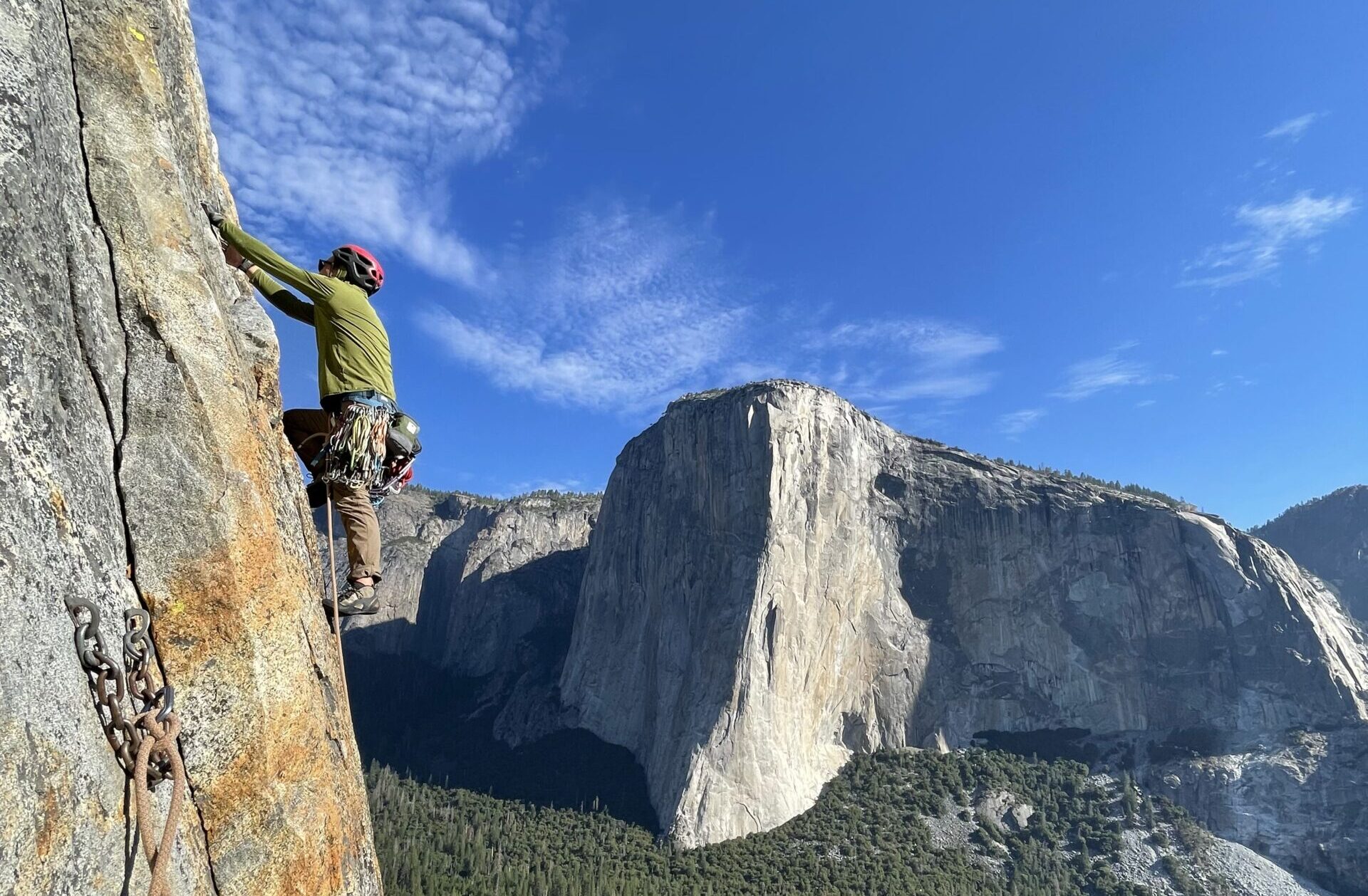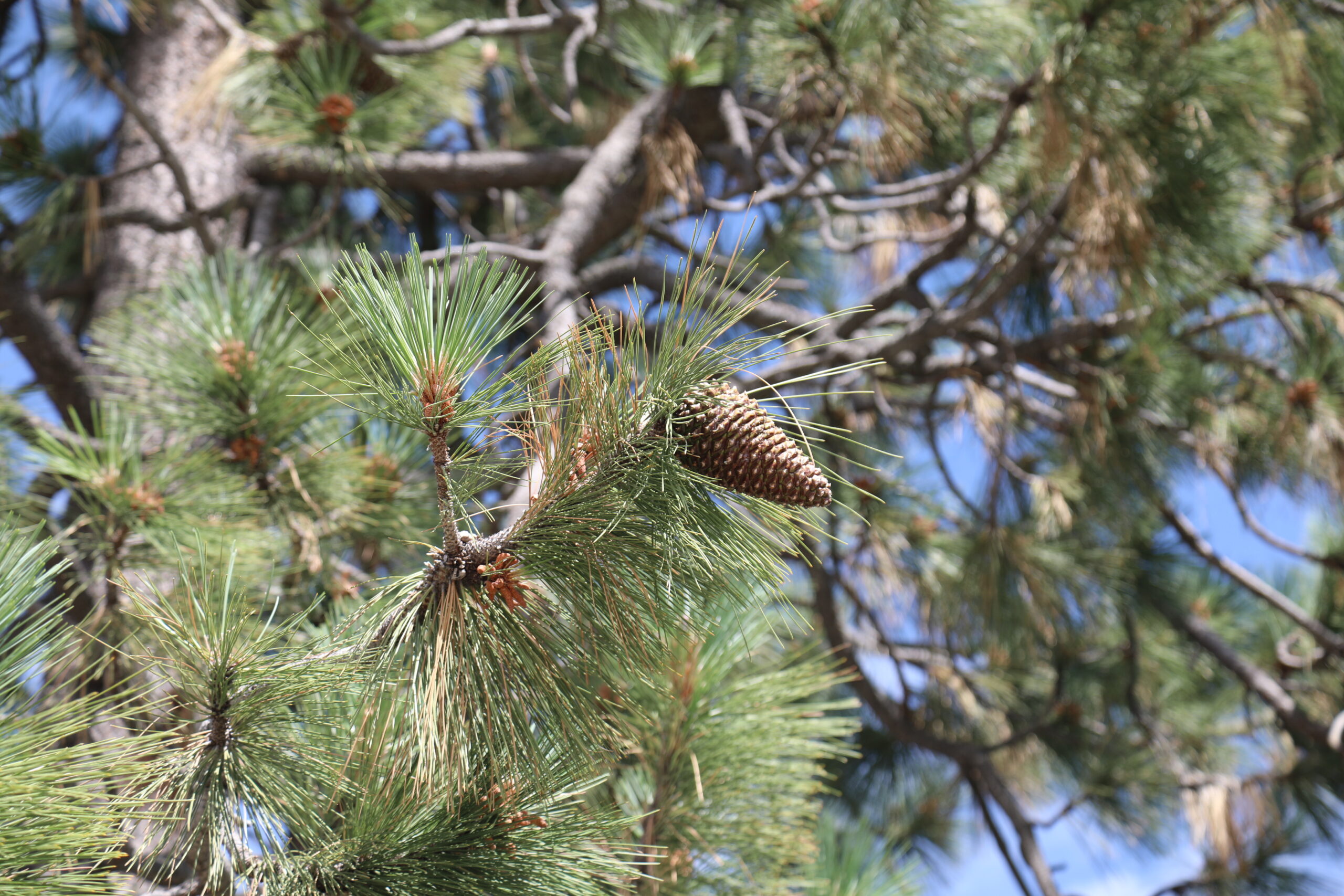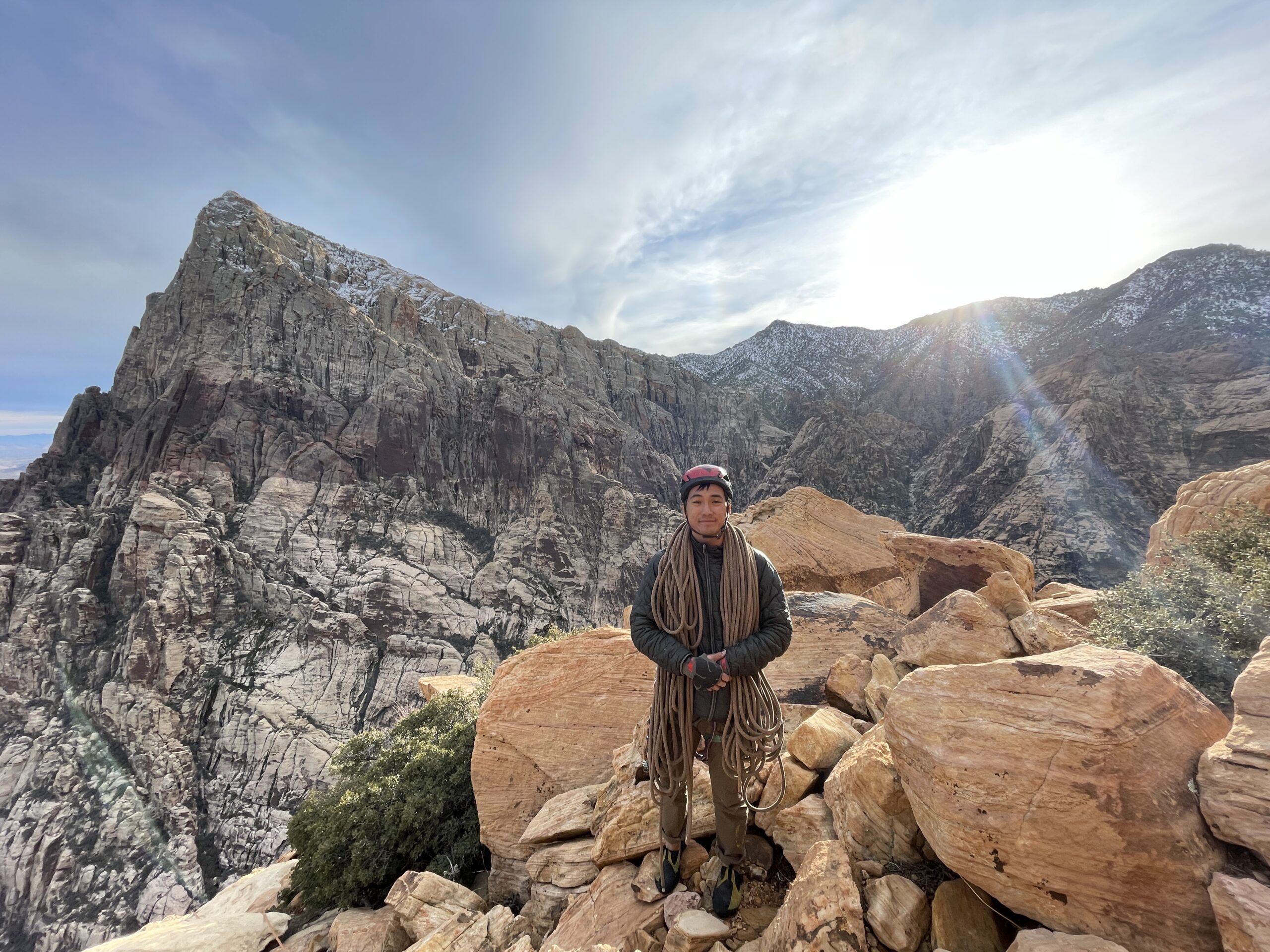
Above: The author climbing in Yosemite Valley.
As a climber, I have always been proud to be part of a culture that celebrates minimizing our collective impact on wilderness. We strive to be good stewards of the playgrounds we recreate in, whether it be sea cliffs, lowly boulders, limestone caves or the hallowed big mountains. Hopefully, we take the time to stay on trail, pick up a wrapper or two and, when in a pinch, pack our poop out. Pun intended. Alas, it is a humbling truth that no matter how hard we try to tiptoe our way through the backcountry we will inevitably leave some sort of impact. We live in an age of overcrowding in many of America’s great natural places, and therefore our societal impact on the Yosemites, Zions and Big Surs of the world is both outsized and in need of better management. Frankly, the preservation of these places is as much about an individual’s initiative as it is about the collective, and for those of us who call wilderness a regular part of our lives, it is of the utmost importance that we be conscientious. Perhaps, in addition to minimizing our impact, we ought to try to find a way to actively protect the places where we recreate, whether we climb, surf, ski, hike, dive or fish. Call it a Net Positive Impact. This is where participating in citizen science can offer a solution. Through citizen science, we can use our existing time, energy, and expertise in the backcountry to contribute to conservation, legislation, and preservation.

Above: Cone scouting photos taken while volunteering for Adventure Scientists’ Reforestation: Western US project.
Citizen science may come off as a grandiose term but it really just describes regular people participating in or collaborating with the scientific community and its research. It is often carried out in small actions: a water sample collected, a GPS coordinate marked, a picture taken. Nonetheless, the culmination of many data points collected by driven members of the public can lead to a great increase in scientific understanding. In 2017, NASA recognized five exoplanets described by hobbyist astronomers. The Pathala Eel Loach (Pangio pathala) was discovered when an Indian stage decorator captured the fish that had just flowed out of his showerhead and had the insight to take it to an ichthyologist. It was determined that the animal was completely new to science. No PhD needed. Adventure Scientists acts as an intermediary between the outdoor community and scientific community. The thing about outdoor folks is that we go to places that other people, even some of the most dedicated scientists, don’t necessarily want to go. Honestly, most scientists are probably too busy to spend a weekend trekking through an endless expanse of backcountry encountering biting insects, dirt, and excessive heat while one’s body aches. We are weird. We seek this out. A lot of lab researchers are probably too engaged in important things… or maybe just too intelligently cautious.
The dedicated outdoors person will inevitably gain highly specialized skills over time. A fly fisher will learn to easily navigate a river and read small signals from fallen trees, bends, and eddies. An experienced SCUBA diver will learn to calm their breath and therefore stay underwater longer. A mountaineer will be comfortable in terrain others would consider unnerving. These abilities give us an advantage when conducting field research in the backcountry. Overall, we are comfortable and able to stay composed, focused, and detail-oriented. With sufficient training, the outdoor community offers a great potential to collect the highest quality data from the most inaccessible and often desirable areas of study for biologists, geologists, hydrologists, botanists, and many other scientists. One of Adventure Scientists’ key goals within each project is to provide this training. This makes partnering with leading scientists of the utmost importance.
For the ongoing Ground Truth Coral Bleaching project, Adventure Scientists has partnered with Dr. Andrea Rivera-Sosa and the Allen Coral Atlas (ACA). The ACA is a groundbreaking conservation tool that uses satellite monitoring to track coral bleaching worldwide. The first of its kind, it has the potential to help create marine reserves, direct artificial reef creation, or assist in the study of coral that is resistant to warming oceans. Its accuracy, however, must be confirmed by divers in the field. Dr. Rivera-Sosa, who has multiple years of experience performing reef transect research, will be training volunteers through Adventure Scientists to provide photos to confirm the predictions of the ACA, and thereby, determine the usefulness of the Atlas in addressing coral reef bleaching, one of the most important marine conservation issues of our time. Most serious divers already care about the health of marine ecosystems; many just do not have an outlet to contribute to conservation. Adventure Scientists is able to provide this outlet and the necessary education to allow individuals to take initiative. Outside of divers, the majority of the outdoor community is aligned with the ideals of preservation, conservation, and stewardship that compels many scientists to enter their chosen field. Wherever Adventure Scientists can create a bridge between these two communities is another opportunity to further environmental protection.
The greatest challenge in realizing the potential of the adventurous is to convince them the time that they have to spend outdoors should include data collection. Most of us have day jobs, family obligations, or other commitments that make our time outside a limited resource. We often seek the isolation, focus, and simplicity that nature provides, which might make the idea of following instructions unappealing. However, it behooves us to reflect on the value we have extracted from the natural world, its complexity and the uncertainty of its continued presence in our lives. We often forget the threats from climate change, pollution, societal expansion and resource exploitation that plague most of the world’s wilderness. It is through the power of scientific research that legal protections can be put in place to ensure the continued existence of the places where we recreate. By ensuring their protection, we ensure a future for our sports, our sources of happiness, and the opportunity for younger generations to engage.
If you feel ready to give some of your time to citizen science, check out the volunteer opportunities at Adventure Scientists. Discover where your passions can intersect with their work. You might just find that citizen science will not only enable more adventures but enrich them in a whole new way.

Above: Topping out in Red Rock Canyon, NV.
CJ Chao is a NAUI Master SCUBA diver, freeride skier, and rock climber living in Berkeley, CA. You can reach him at cj@headwatermtn.com
